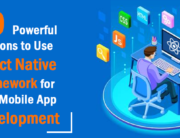A Quick view of Apple’s Swift
The new revolutionary programming language for ios App Developers
This June’s highlight is on Apple’s major announcement and launching of its new programming language called Swift. The announcement came as a surprise to app developers and the public since it was not anticipated and it did not follow the usual- ‘end year announcement’.
The Worldwide Developer Conference(WWDC) event, also saw the release of a 550-page language guide, which appeared on Apple’s iBooks store. Terming the move as a modern smart replacement of its current language Objective-C, Apple has allowed app developers to create applications through the introduction of Playground in the Swiftand access to Xcode 6 betas. This lets the developers to work efficiently without leaving the IDE.
New features
The new programming language has modern features, which make programming for developers much easier, flexible and exciting. Beginners into app development and programming will find Swift easier to use due to its simple syntax, since the current Objective-C is complex.
App development encounters errors in coding, which at times trickles down to the final product. Now this problem is solved through Swift’s design, which is able to latch the coding errors at the inception stage.
Words, symbols and numbers or simply syntax used in Swift are a complete deviation from Objective-C. Unnecessary stuffs have been chunked off such as semi-colons at the end of each line and square brackets. There is conclusion of Types, hence no need to declare NSArray before your variables.
Similarities and differences between Swift and Objective-C
On a strong magnify, Swift has similarities with Objective-C, as most developers would agree. It just simplifies key constructs and makes code easily readable. However, the key feature that can be the deal breaker in the success of Swift and sets it apart from Objective-C, is the Xcode’s playground. Before, developers had to build an entire app and put it to test, of which it could fail but with the new tool, developers can play with the code, test and see if it will do what they want.
Will Swift replace Objective-C?
Well, it will depend if it will live up to its expectations and from the reviews,it gets from developers who are faced with coding errors and bugs in the current programming language. The big winner in all this is Apple as it expects many developers to jump on this bandwagon and create apps for its products. In addition, it anticipates increased automation and many apps and updates to arrive in the app store.







Leave A Comment